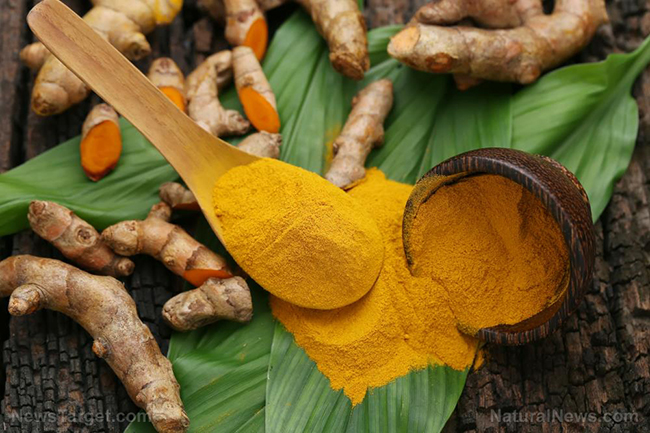Share from/by Rose Lidell
May 3, 2022 – Turmeric (Curcuma longa) is a spice famous for its many health benefits and culinary uses. It’s also a staple herb in both Ayurvedic and Traditional Chinese Medicine.
The use of turmeric as medicine dates back thousands of years. Research shows that turmeric root can offer benefits for cardiovascular, immune, neurological, metabolic and even cellular health.
Additionally, turmeric supports thyroid health and promotes longevity. Turmeric’s many health-promoting qualities are due to curcumin, the active compound that gives turmeric its beautiful golden hue.
According to studies, pairing turmeric with black pepper boosts its bioavailability.
Addressing the weakness of turmeric with black pepper
While turmeric is touted for its many benefits, it has one weakness: curcumin’s poor bioavailability. This means that your body can only use a very small amount of the curcumin you consume.
And since curcumin absorption is very low, your body can’t enjoy the full benefits of the superfood. Thankfully, you can enhance the bioavailability of curcumin by combining turmeric with black pepper.
Black pepper (Piper nigrum) is one of the most commonly used spices on the planet. It can often be found next to salt, another common spice.
Black pepper is also known as “black gold” and “the king of spices.” When stored properly, it has a long shelf life and can retain its taste and aroma for several years.
Like turmeric, black pepper has many health benefits. The spice is often used to treat minor complaints like headaches, nausea, poor digestion and sore throat.
Black pepper’s health benefits and pungent flavor come from piperine, a natural alkaloid compound. Studies show that taking turmeric with black pepper boosts curcumin’s bioavailability by as much as 2,000 percent. This is because piperine is an efficient bio-enhancer.
You don’t need a lot of black pepper to turmeric; a pinch is enough to boost your body’s absorption of curcumin.
Potent piperine
When you consume a nutrient, your digestive system only absorbs a certain portion of it. The proportion of a nutrient that your body can digest, absorb and use corresponds to its bioavailability.
For example, the bioavailability of protein is very high and most people can use over 90 percent of the protein they consume. Once protein moves through your digestive system, your body eliminates the rest as waste.
For a nutrient to be absorbed into your body, it must first pass through a membrane in your gut and enter your bloodstream.
Large molecules have a more difficult time passing through this barrier. But since piperine can relax the intestinal membrane, it makes it easier for large molecules like turmeric to pass through.
The effect of piperine on the liver also plays an important role. As part of your normal metabolism, the liver releases UDP-glucuronic acid. Through glucuronidation, the acid bonds with other substances to make them more water-soluble and easier to excrete.
However, with turmeric, glucuronidation occurs too quickly, meaning curcumin is eliminated from your system before your body can make full use of it.
Fortunately, research has found that piperine lowers blood levels of UDP-glucuronic acid, inhibiting glucuronidation. This helps slow your liver metabolism of curcumin enough for your body to absorb the nutrient more efficiently.
The health benefits of turmeric and black pepper
As mentioned above, both turmeric and black pepper have many health benefits, and combining the two allows you to enjoy the following:
Impressive antioxidant properties
Turmeric is full of beneficial compounds with antioxidant properties. For example, curcumin is a potent antioxidant that’s 10 times more powerful than resveratrol, a well-known antioxidant in red wine.
Piperine also has impressive antioxidant properties. Piperine from black pepper helps reduce oxidative stress caused by a high-fat diet.
When you consume pepper with turmeric regularly, you reap double the antioxidant protection, which is good for your overall health.
Protection from harmful organisms
Cell culture studies show that turmeric is effective against harmful organisms. However, more research is required to determine if this effect can be replicated in the human body.
As a bioenhancer, piperine can boost these abilities and also helps fight harmful organisms.
Great liver health
Turmeric helps increase cholesterol elimination by boosting bile production in the liver. Curcumin also protects liver cells from damage caused by toxins like household chemicals, tobacco smoke, peroxide and galactosamine.
Meanwhile, black pepper helps boost the activity of glutathione, an antioxidant that protects your liver cells.
Great digestive health
In Ayurvedic Medicine, turmeric is used to naturally support digestive health. Modern studies have also confirmed that the spice helps relieve spasms and flatulence.
Both turmeric and black pepper can also boost the activity of digestive enzymes, thus promoting healthy digestion.
Relief from discomfort
Turmeric and black pepper can help relieve temporary discomfort. Specifically, piperine desensitizes a pain receptor called TRPV1. On the other hand, turmeric helps reduce occasional joint discomfort.
When combined, they also help relieve stiffness and soreness, which is why turmeric and black pepper are popular among athletes. Food.news.



